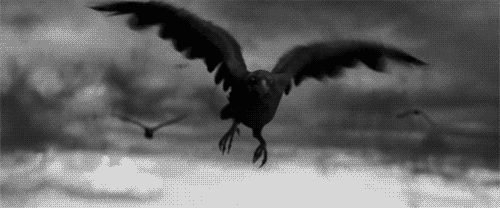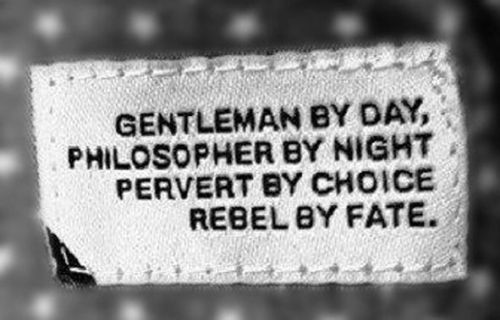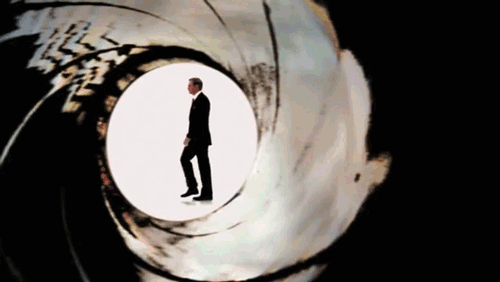
The British film-making partnership of Michael Powell and Emeric Pressburger, also known as The Archers, made a series of influential films in the 1940s and 1950s, and in 1983 were recognized for their contributions to British cinema with the BAFTA Academy Fellowship Award, the most prestigious award given by the British Academy of Film and Television Arts.
Their collaborations were mainly written by Pressburger, with Powell directing. Unusually, the pair shared a writer-director-producer credit for most of their films.
Michael Powell was already an experienced director, having worked his way up from making silent movies to the WWI drama The Spy in Black (1939), his first film for Hungarian émigré producer Alexander Korda. Emeric Pressburger, who had come from Hungary in 1935, already worked for Korda, and was asked to do some rewrites for the film. This collaboration would be the first of nineteen, most of which would be made over the next 18 years.
After Powell had made two further films for Korda, he was reunited with Pressburger in 1940 for Contraband, the first in a run of Powell and Pressburger films set during World War II. The second was 49th Parallel (1941), which won Pressburger an Academy Award for Best Story. Both are Hitchcock-like thrillers made as anti-German propaganda.
The pair adopted a joint writer-producer-director credit for their next film, One of Our Aircraft is Missing (1942). In 1943 they formed their own production company, Archers Film Productions and adopted a distinctive archery target logo which began each film. The joint credit "Written, Produced and Directed by Michael Powell and Emeric Pressburger" indicates their total joint responsibility for their own work and that they weren't beholden to any studio or other producers.
In a letter to Deborah Kerr, asking her to appear in Colonel Blimp, Pressburger explicitly set out 'The Archers' Manifesto'. Its five points express the pair's intentions:
We owe allegiance to nobody except the financial interests which provide our money; and, to them, the sole responsibility of ensuring them a profit, not a loss.
Every single foot in our films is our own responsibility and nobody else's. We refuse to be guided or coerced by any influence but our own judgement.
When we start work on a new idea we must be a year ahead, not only of our competitors, but also of the times. A real film, from idea to universal release, takes a year. Or more.
No artist believes in escapism. And we secretly believe that no audience does. We have proved, at any rate, that they will pay to see the truth, for other reasons than her nakedness.
At any time, and particularly at the present, the self respect of all collaborators, from star to prop-man, is sustained, or diminished, by the theme and purpose of the film they are working on.
They began to form a group of regular cast and crew members who were to work with them on many films over the next twelve years. Hardly any of these people were ever under contract to The Archers. They were hired film by film. But Powell and Pressburger soon learnt who they could work well with and these people enjoyed working with them. When Raymond Massey was offered the part of the Prosecuting Attorney in A Matter of Life and Death his cabled reply was "For the Archers anytime, this world or the next."
The remainder of the war saw them release a series of remarkably inventive films:
The Life and Death of Colonel Blimp (1943)
The Volunteer (1943) a short propaganda film
A Canterbury Tale (1944)
I Know Where I'm Going! (1945)
A Matter of Life and Death (1946)
Black Narcissus (1947)
The Red Shoes (1948). Their most commercially successful film.
The Small Back Room (1949)
The Elusive Pimpernel (1950)
Gone to Earth (1950). A substantially re-edited version was released in the US as The Wild Heart (1952) by co-producer David O. Selznick, after a court battle with Powell and Pressburger. The film was fully restored by the British Film Archive in 1985.
The Tales of Hoffmann (1951)
Generally, Pressburger would create the original story (for all their films from 1940–1946 plus The Red Shoes) and write the first draft of the script. They would then pass the script back and forth a few times – they could never work on it together in the same room. For the actual dialogue, Pressburger would know what he wanted the characters to say but Powell would often supply some of the actual words.
They would both act as producers, perhaps Pressburger slightly more so than Powell, since he could sooth the feathers ruffled by Powell's forthright manner. They became their own producers mainly to stop anyone else poking their noses in, since they had a considerable degree of freedom, especially under Rank, to make just about any film they wanted.
The direction was nearly all done by Powell, but even so The Archers generally worked as a team, with the cast and crew often making suggestions. Pressburger was always on hand, usually on the studio floor, to make sure that these late changes fitted seamlessly into the story.
Once the filming was finished, Powell would usually go off for a walk in the hills of Scotland to clear his head, but Pressburger was often closely involved in the editing, especially of the way the music was used. Pressburger was a musician himself and played the violin in an orchestra in Hungary.
When the film was finally ready and Powell was back from the Highlands, it would usually be Powell that would be the front man in any promotional work, such as interviews for the trade papers or fan magazines.
Because collaborative efforts such as Powell's and Pressburger's were, and continue to be, unusual in the film industry, and because of the influence of the auteur theory, which elevates the director as a film's primary creator, Pressburger has sometimes been dismissed as "Michael Powell's scriptwriter", but Powell himself was the first to say, in many interviews, that he couldn't have done most of what he did without Pressburger.
British film critics gave the films of Powell and Pressburger a mixed reaction at the time, acknowledging their creativity but sometimes questioning their motivations and taste. For better or worse, The Archers were always out of step with mainstream British cinema.
From the 1970s onwards, British critical opinion began to revise this lukewarm assessment, with their first BFI retrospective in 1970 and another in 1978. They are now seen as playing a key part in the history of British film, and have become influential and iconic for many film-makers of later generations, such as Martin Scorsese, Francis Ford Coppola, George A. Romero, Wes Anderson and many more.
In the early 1950s the Powell and Pressburger began to produce fewer films, with notably less success. This may have been because they switched from making films for the British Rank Organisation to the Hollywood-led Alexander Korda. The Archers' productions officially came to an end in 1957, and the pair separated to pursue their individual careers. The separation was quite amicable and they remained devoted friends for the rest of their lives.
In 1960 Michael Powell directed Peeping Tom, which has been praised for its psychological complexity. On the surface, the film is about the Freudian relationship between the protagonist and his father and the protagonist and his victims. However, several critics argue that the film is as much about the voyeurism of the audience as they watch the protagonist's actions. For example, Roger Ebert, in his review of the film, states that "The movies make us into voyeurs. We sit in the dark, watching other people's lives. It is the bargain the cinema strikes with us, although most films are too well-behaved to mention it."
In this reading, Lewis is an allegory of the director of a horror film. In horror movies, the directors kill victims, often innocents, to provoke responses from the audiences and to manipulate their responses. Lewis records the deaths of his victims with his camera and by using the mirror and showing each of his victims their last moments, provokes their own fear even as he kills them.
Martin Scorsese, who has long been an admirer of Powell's works, has stated that this film, along with Federico Fellini's 8½, contains all that can be said about directing:
"I have always felt that Peeping Tom and 8½ say everything that can be said about film-making, about the process of dealing with film, the objectivity and subjectivity of it and the confusion between the two. 8½ captures the glamour and enjoyment of film-making, while Peeping Tom shows the aggression of it, how the camera violates... From studying them you can discover everything about people who make films, or at least people who express themselves through films."























No comments:
Post a Comment